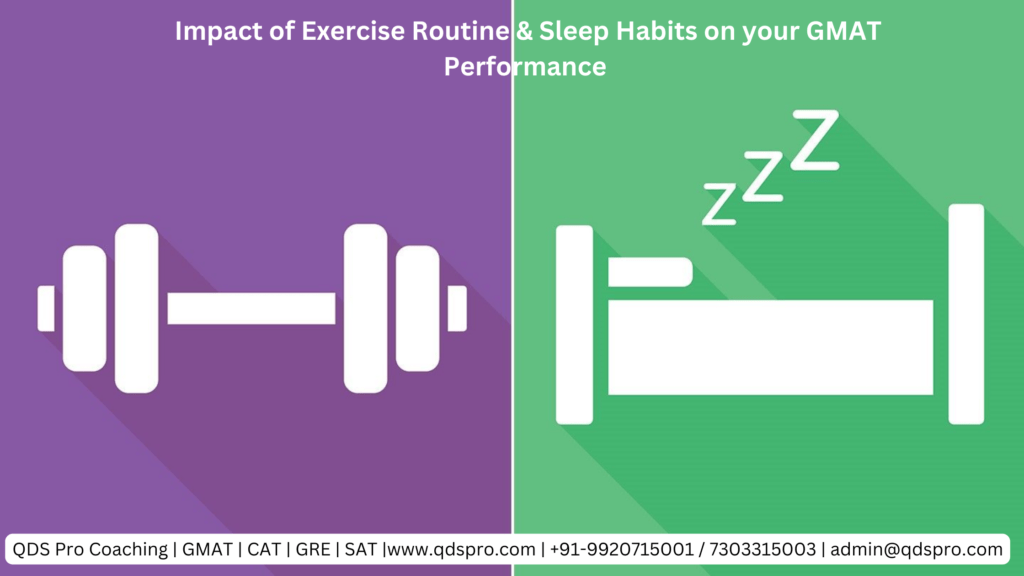Certainly!
GMAT performance can be influenced by many factors, including sleep habits and exercise routines. In fact, a lack of sleep and exercise can have negative effects on your cognitive abilities, which can in turn impact your GMAT scores. Here’s what you should know:
SLEEP HABITS:
Sleep is crucial for brain function and cognitive performance. Lack of sleep can lead to fatigue, decreased alertness, and impaired concentration. These factors can make it difficult to stay focused and solve complex GMAT questions. Therefore, it’s important to establish healthy sleep habits in the weeks leading up to the GMAT.
Here are some tips for optimizing your sleep habits:
1. Establish a regular sleep schedule. Try to go to bed and wake up at the same time every day, even on weekends.
2. Create a relaxing bedtime routine. This might include reading a book, taking a warm bath, or practicing meditation or relaxation exercises.
3. Avoid stimulants such as caffeine and nicotine, especially before bedtime.
4. Make sure your bedroom is quiet, dark, and cool.
5. Limit screen time before bed. Exposure to blue light from screens can disrupt your natural sleep cycle.
EXERCISE ROUTINES:
Exercise is another important factor that can affect your GMAT performance. Regular exercise can boost cognitive function and improve memory, attention, and concentration. Exercise can also help to reduce stress, which can have a positive impact on test-taking performance.
Here are some tips for optimizing your exercise routine:
1. Find an exercise routine that works for you. This might include running, yoga, weightlifting, or any other physical activity that you enjoy.
2. Aim for at least 30 minutes of moderate exercise per day.
3. Exercise at least 3-4 times per week.
4. Try to incorporate physical activity into your daily routine. This might include taking the stairs instead of the elevator, going for a walk during your lunch break, or doing some stretches at your desk.
5. Don’t overdo it. While regular exercise can be beneficial, it’s important not to push yourself too hard, especially in the days leading up to the GMAT. Make sure to get enough rest and recovery time to avoid burnout.
In conclusion, sleep habits and exercise routines are two factors that can have a significant impact on your GMAT performance. By establishing healthy habits and routines, you can optimize your cognitive function and give yourself the best chance of success on test day.




